Promoting Function & Maintaining Independence in the Face of Dementia from Jane Yakel
Outline:
DEMENTIA AND DISEASES
Differential diagnosis of degenerative diseases of the neurological
Detect how dementia symptoms vary between the diseases
ASSESSING OR STAGING? WHAT I MEAN IS THAT FOR US, AND WHAT DO WE DO?
Standardized assessments
Patient-centered assessments
“Staging Tools”
What patient skills, to count, in each stage of
Times ages go with the steps
DOCUMENTING DEMENTIA EXPERT INTERVENTIONS
Write patient-centered goals
Measure progress and justify the medical
Making the daily documents “expert”
Key words, which reflect the functional outcome in dementia therapy
ADDED TO THE MEMORY SYSTEM
Memory system to use the new learning/conscious memory
Memory system the doctrine of unconscious memory
Documenting memory, the system, through a medical diagnosis
EVIDENCE-BASED THERAPEUTIC INTERVENTIONS
Errorless Learning
Error vs Errorless learning
Parts for the option to use errorless learning
Interactive lab/case discussion
Spaced Retrieval
The specific timing and parts of distinct retrieval for dementia of men
C. a “prompt question”
Discipline-specific demonstrations use Distinct
Retrieval
Written goals and the expert documents
Montessori-based Dementia Programming
Cicero Montessori learning in the professional therapy intervention
Retrogenesis: Understanding The First In Last Out Theory
Create a structured stimulating activities appropriate to each of the cognitive levels
Written goals & skilled documentation specific for
Montessori skills
The Ability-Based Approach
The design of successful therapeutic interventions according to patient abilities
Determine the patients best ability to function
Written goals & skilled documentation specific for to be able to rely on skills
Examples and case studies, provided
Reminiscence Therapy
Powerful use of “sense” used to wake up the soul
Know the patient is “living within”
Plan individual and/or group Reminiscing Therapy sessions
Select activities and create reminiscing themes and kits
Written goals and the expert documents
Memory Books/Aids
Proven methods in the present role & are in the data written & picture format
The Idea of design for each of the stages of life/ “stages” of dementia
COMMUNCATION SKILLS: KEYS TO CHARACTER
Reflective Listening
Listening from a place of empathy & emotional intelligence
The use of multiple verbal formulas are proven for success
Client-centered communication – Reflection of Feeling
Avoiding the pitfalls all the audience to fall in
Interactive lab/case examples and a comparison
Validation Therapy: A Powerful Communication Tool
Principles and pointers for dismantling power struggles, and the solvent of the arguments
Accepting the values, beliefs, and investments regardless of the accuracy
Investment hallucination, delusions, hoarding, blamers and accusers
Interactive lab/case examples and a comparison
Re-line
Admin key “fit” with what the patients wants/needs through the interview
Case study for safety, ambulation, hallucinations, and delusions
Interactive lab/case examples and a comparison
Description:
Sooner or later, will touch all of us: our patients, family members or anyone else close to us is diagnosed with dementia. With our population aging, we will always be swept in the excitement of the daunting task to teach the demented patient skills, which are hard to by, including; locking wheelchair brakes for safety; drinking fluid to prevent dehydration; increase functional independence in toileting, and most importantly, assisting with the training of the caregiver. To enter in the world of dementia is to see, and paradigm of service delivery shift to the caregiver, it is more important to increase our knowledge and skill levels, not only for our patients, but also for our ability to train caregivers, and family members.
Knowing how the diseases of dementia unfold is an invaluable tool for success. Knowing how, when, and what for the patient, according to the understanding that our professional and ethical, our mission is to help the patient achieve and maintain their highest level of functioning; therefore, we need to know what work is – and this knowing begins to be able to accurately “time” the patient is dementia. Once the patient is staged, the needs of the patient can be more can be seen.
This innovative memory functions staging tools to fully form, in each distinct stage, the patient’s remaining abilities and the patient has lost talent; this is the insight that drives the intervention. Discuss and demonstrate the top evidence-based communication skills in the field of dementia through role play. Complete this dynamic and collaborative memory with the confidence and skills to develop a structured, systematic, and highly individualized therapy program with the ability to justify in practice.


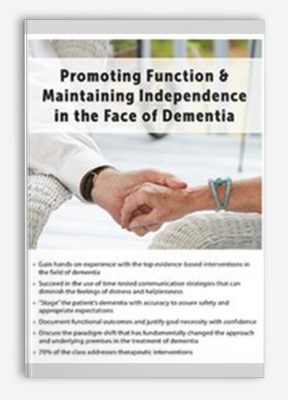

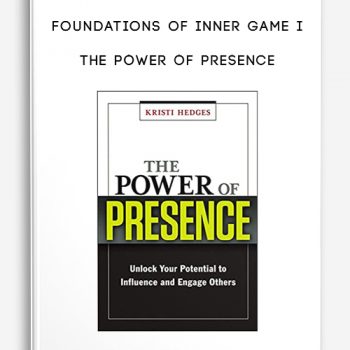
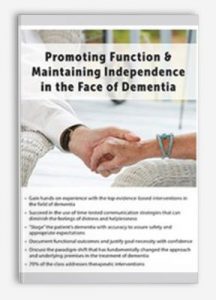

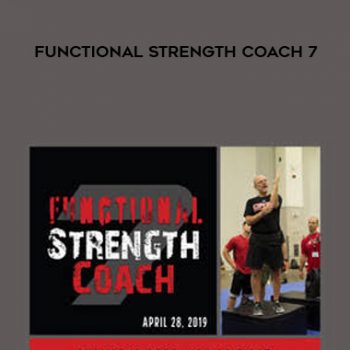
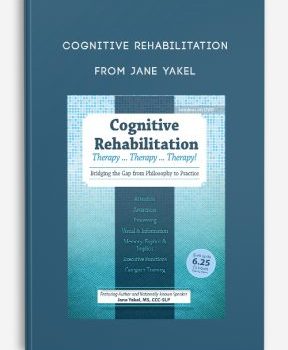




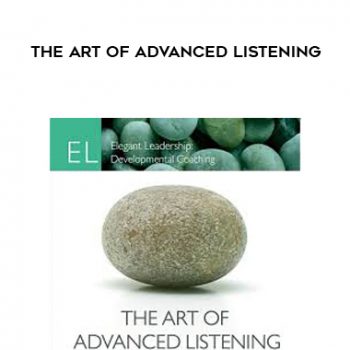
Lord –
This is Digital Download service, the course is available at Coursecui.com and Email download delivery.